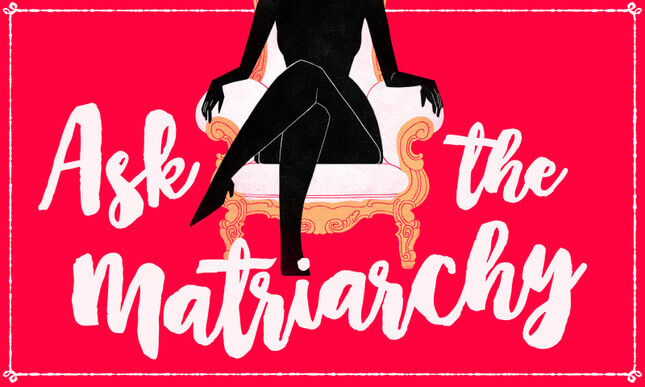

“Ask the Matriarchy” is a four-part advice series running on Thursdays.
Dear Matriarchy,
For many reasons, we enrolled our daughter in private school. The school is small and a good school, and my daughter loves it and has a lot of friends. The school moms, on the other hand, have been straight up rude. I’ve been openly criticized for not volunteering in the school enough (I work full time); one mom loves to jokingly comment how my outfits don’t meet dress code; during the fundraiser one mom berated me in front of the others for how I laid out the baked goods on the table. I handled that by just silently finishing my shift and walking out. They have coffee in the middle of the day and make no effort to invite me. One mom sent me a Facebook message telling me she thought my Facebook posts were “too angry.” I could go on and on with the thousand tiny, petty things.
I have good friends but I feel like I need to make an effort here for my kid, but this is making me feel like high school all over again.
Love,
Done with the Bullshit
Dear Done with the Bullshit,
Recently, I invited one of my daughter’s friends over on a playdate. The mother accompanied her daughter and spent the entire play date criticizing my Halloween decorations as “too spooky.” Three days later, she sent me a follow up text telling me I should have cancelled the play date because I had the beginnings of a small cold. (I actually didn’t.)
Another time, I asked a cool school mom out on a coffee date and she said she was “busy” but that she would “get back to me.” Eight months later, at the school open house, she saw me and said, “Oh, remember when you were looking for friends? Well, I found someone for you.” And then introduced me to her sister.
When she walked away, my husband said, “That was brutal.”
In sum, Hell is other parents.
And parents are the worst kind of hell because they combine all the normal human garbage of idiocy, jealousy, subterfuge, but with the righteous fervor of someone thinking that they are doing it for the children.
The biggest lie our parents told us was that high school drama ends. It doesn’t. People don’t just suddenly grow up and get less petty—most people just get petty in different ways. But what happens is that your world gets larger. You can more easily find your people. And in that way the bullshit ends, because, to a certain extent, you get to run away from it.
But when you have a kid, your world gets smaller again, because you are stuck in a social circle not of your choosing. And weird things happen. Moms you like hanging out with sometimes have awful kids. Or maybe the kids are fantastic, but the mom is weird, so you are stuck at birthday parties gripping your lukewarm lemonade, while everyone eagerly discusses baby-led weaning or how they don’t like Beyoncé and you wonder if you can bash your head into the piñata and rid yourself of this pain forever. And you can’t just give the other parents all the finger, pull a Heathers, or unleash your telekinetic powers and burn these parents to the ground because, well, we have to think about the children and arson is illegal.
-

-

-

-

-

-

-

-

-

-

-

-

-

-

-

-

-

-

-

-

-

-

-

-

-

-

-

-

-

-

-

-

-

-

-

-

-

-

-

-








































